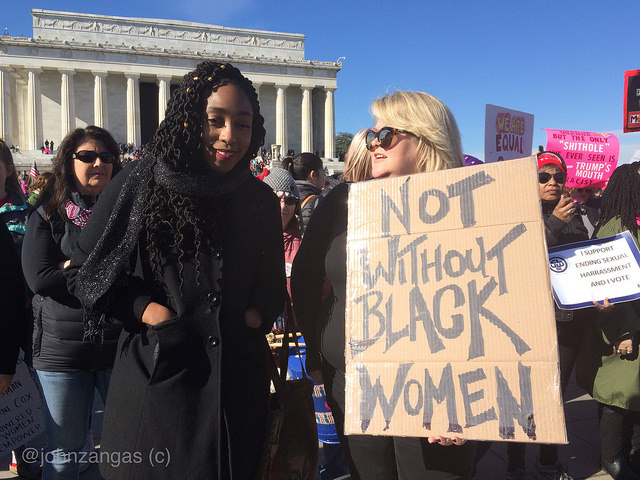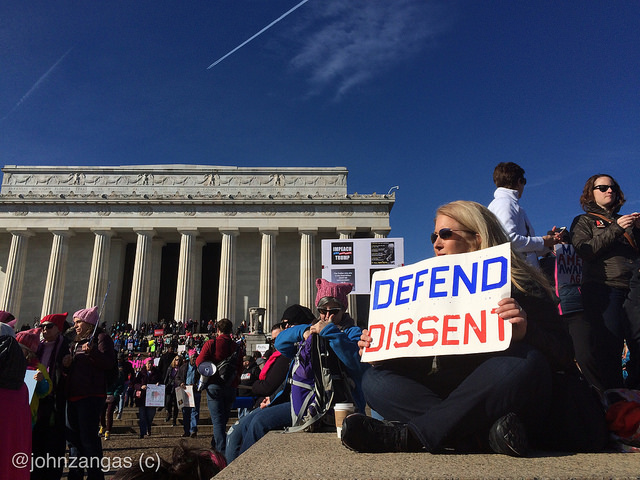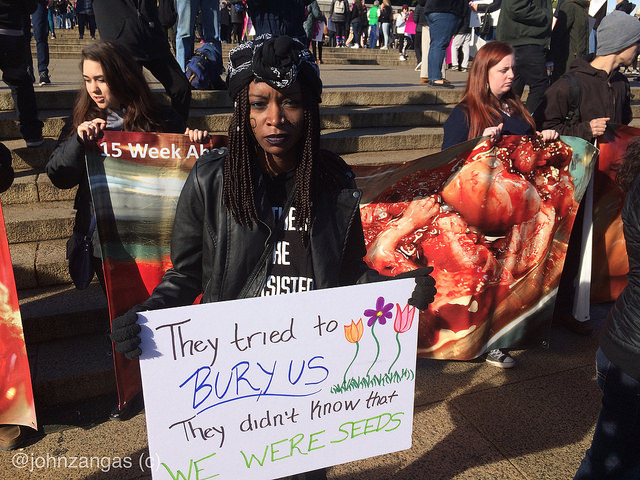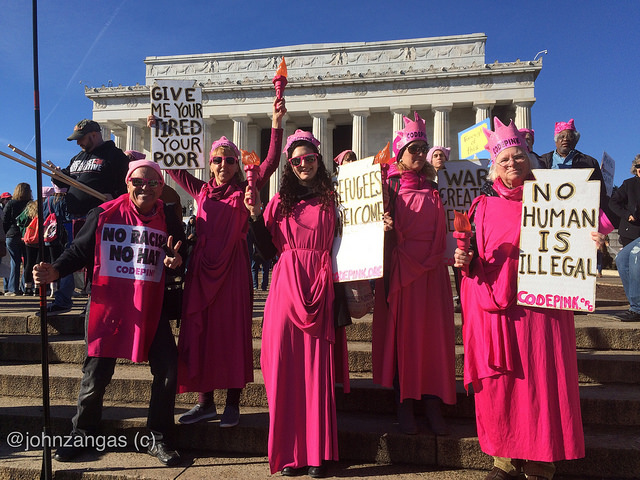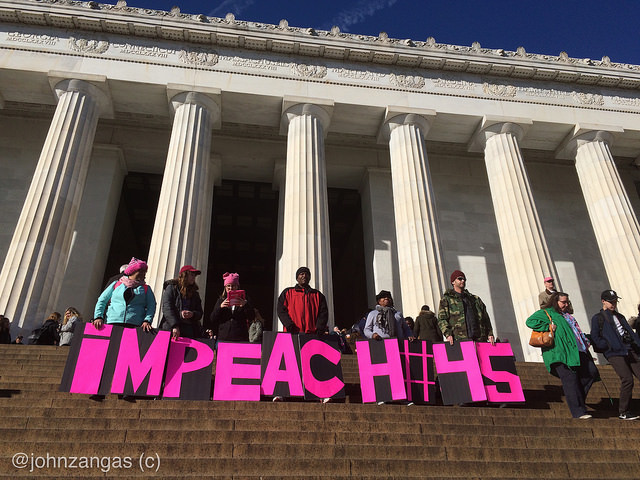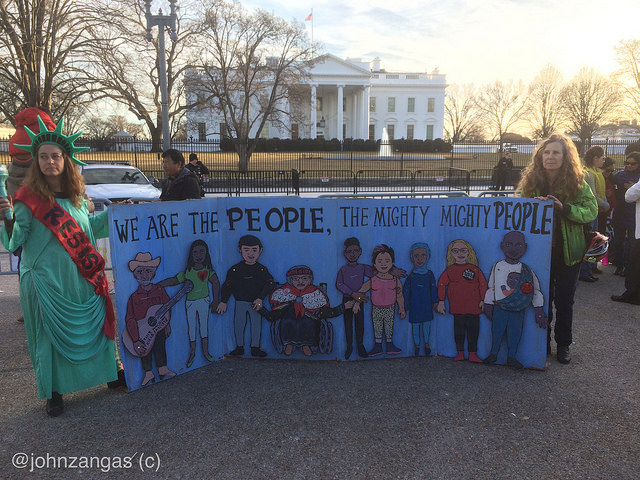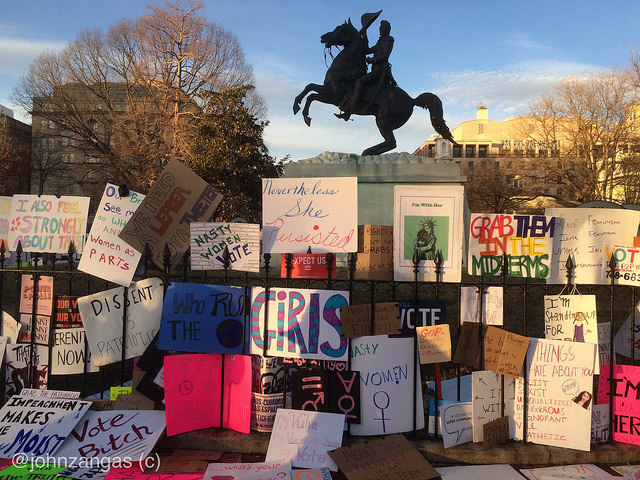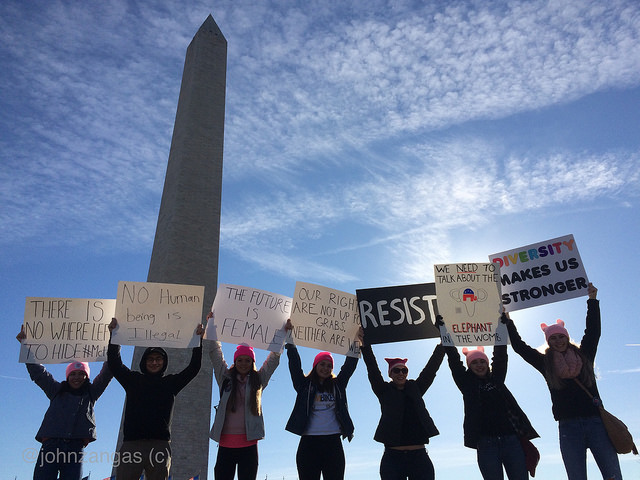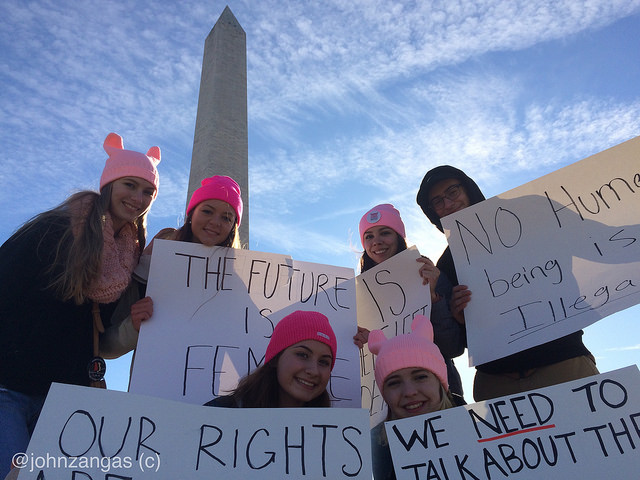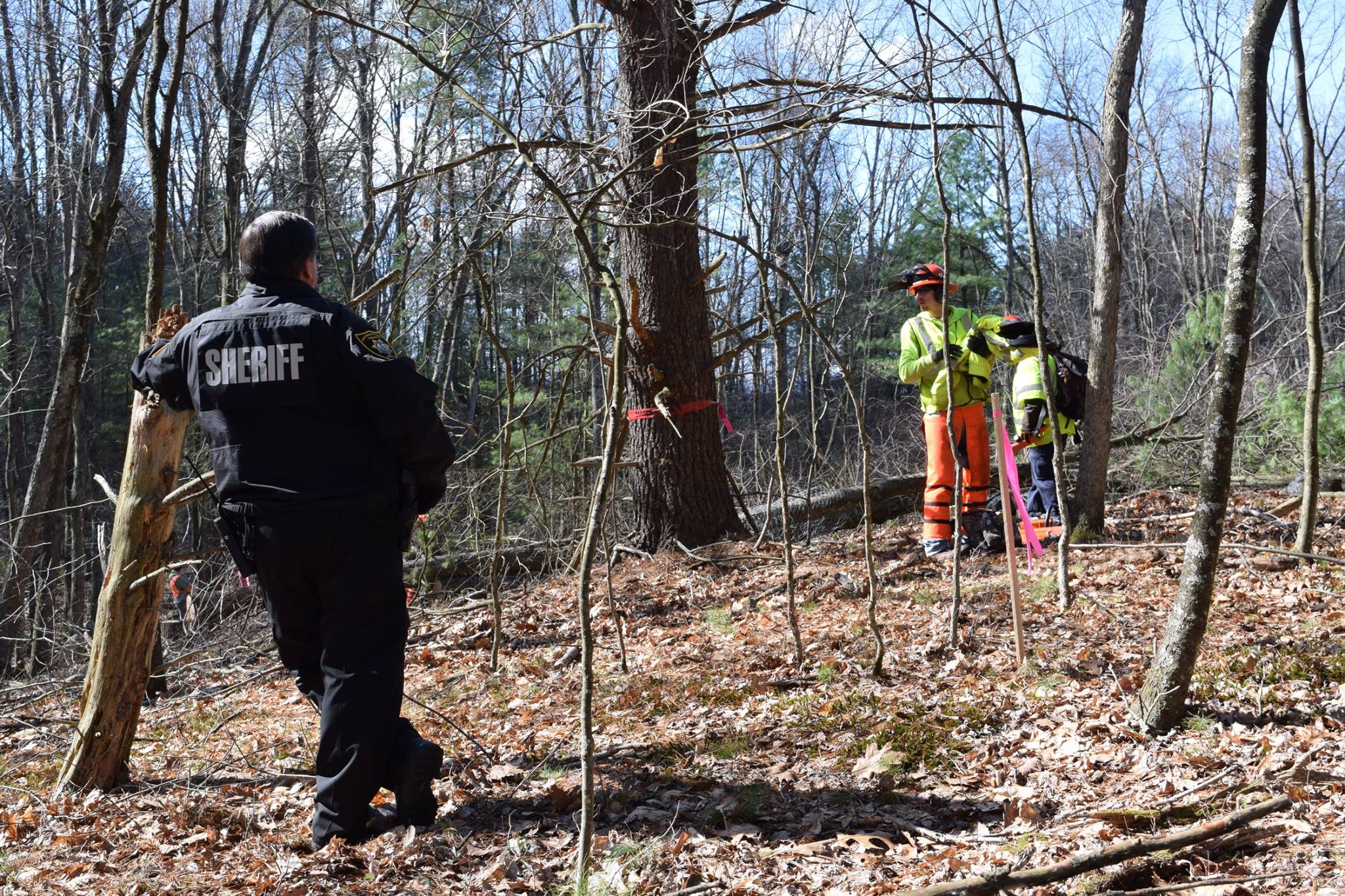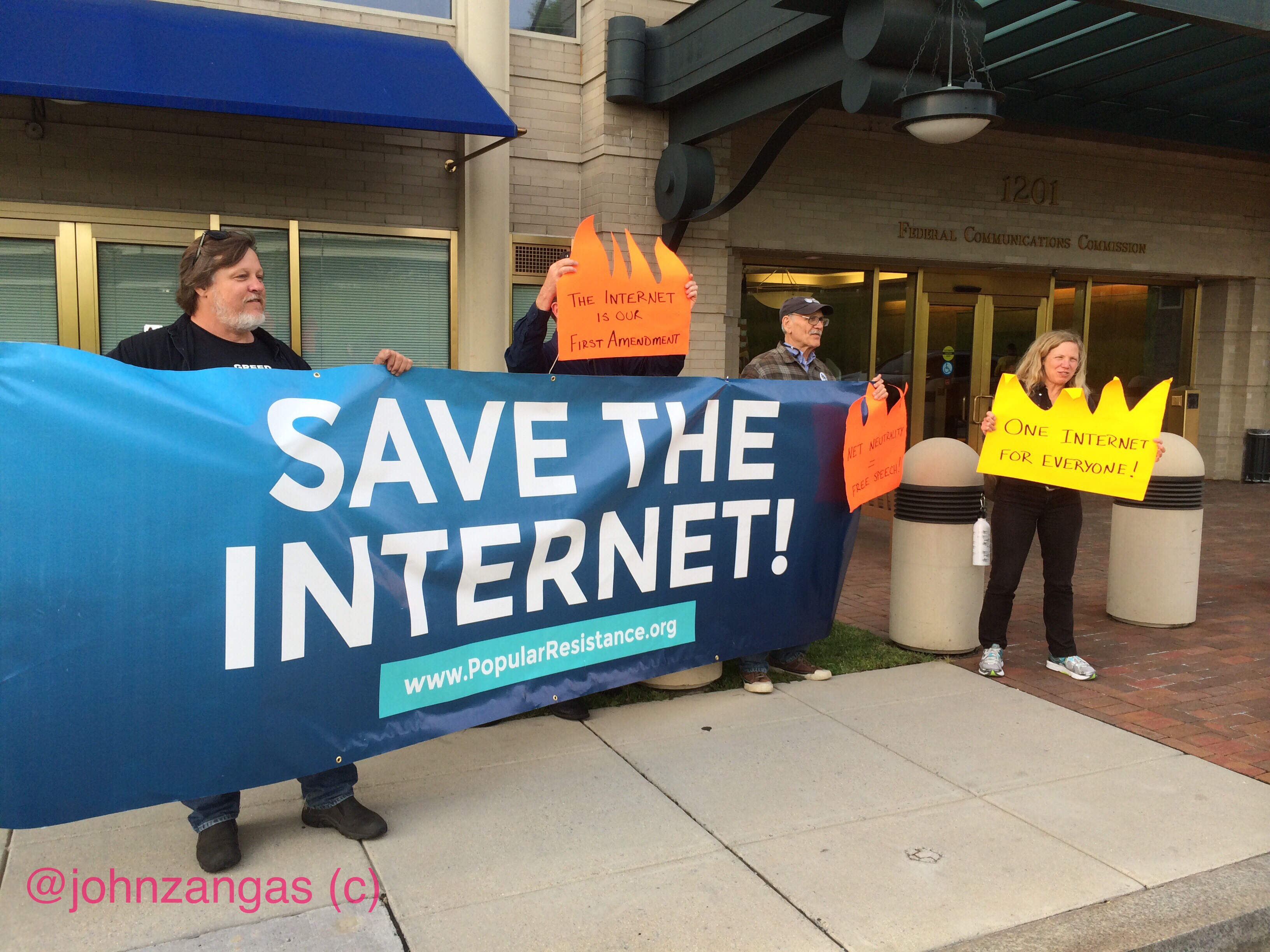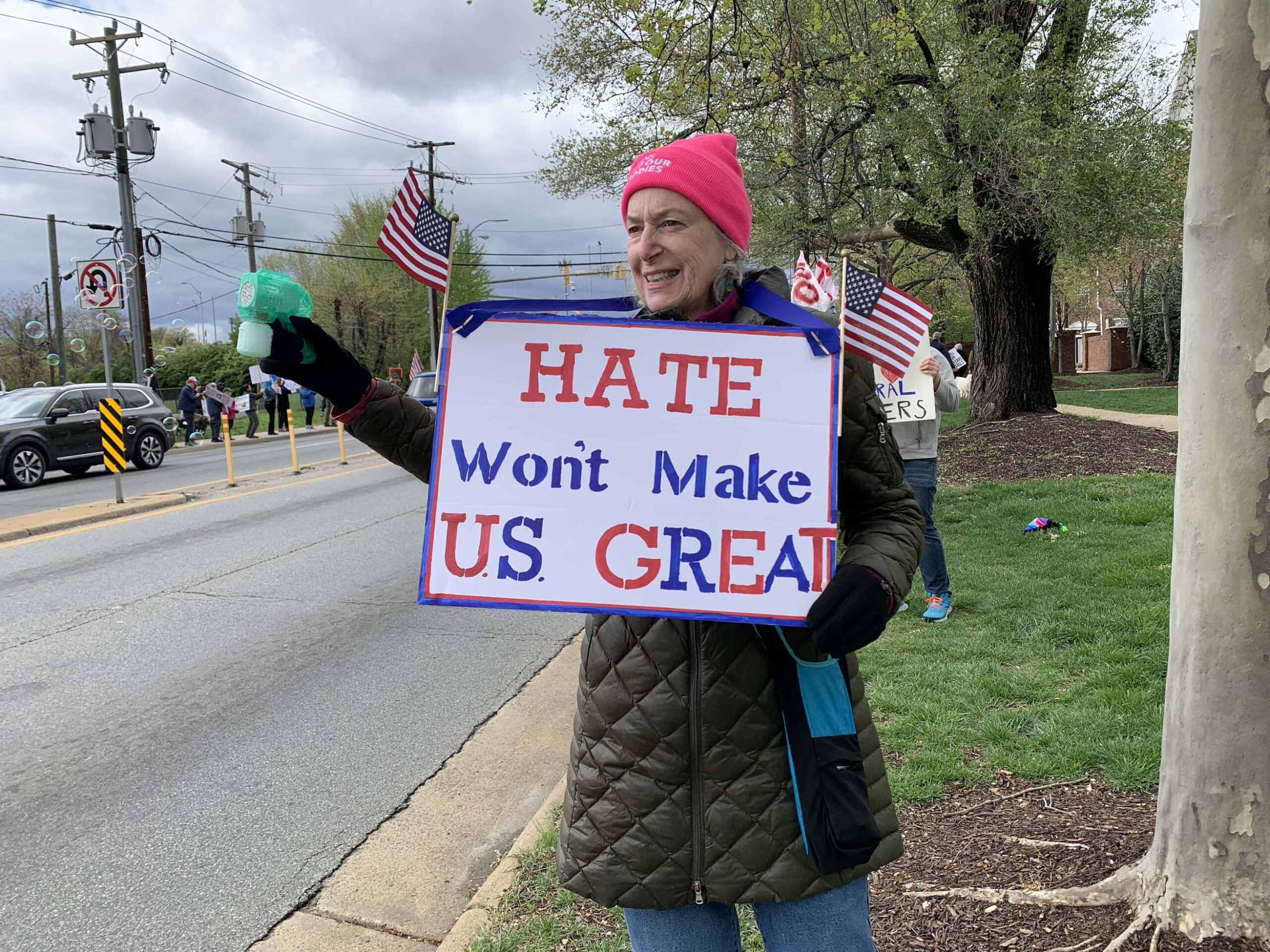Washington, DC — Women returned to the nation’s capital on the anniversary of the first Women’s March on Washington but in smaller numbers this year. They denounced the Trump Administration over policies and statements hurtful and disrespectful to women, minorities and immigrants. The march comes on the wave of the #MeToo movement, which has toppled powerful men with allegations of sexual harassment and assault.
But the January 20 event was not without controversy. A group of black and minority women criticized the march’s leadership, saying they had been brushed aside in a national women’s movement which ought to focus more on their concerns.
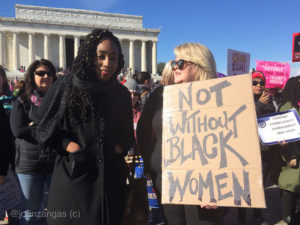
“Black women’s issues need to be at the forefront in order for this country to move forward,” said Brittany Oliver, founding director of Not Without Black Women (NWBW), to many cheers from the crowd gathered at the Lincoln Memorial. About 10,000 people wrapped around the Reflecting Pool and stretched up the Memorial’s steps.
Oliver said she was there to “challenge white feminism” and stress “how important our voices are.”
“Since we were here a year ago, there has been a seismic shift in the way women are dealing with the symptoms of gender bias, including the #MeToo and #TimesUp movements,” she said. She reminded them that #MeToo was founded a decade ago—by a black woman.
“You saw #MeToo and Tawana Burke for over ten years, and [she] didn’t get recognition for it until recently,” Oliver said.
She slowly read the names of ten black women killed by police, repeating “Say Her Name” after each one. She also recognized the late Erica Garner, a black woman turned activist after her father died in a choke hold at the hands of an NYPD officer.
After speakers finished at the Lincoln Memorial, they walked up Constitution Ave. to the White House, chanting messages as they passed the North Portico. Many left their handmade signs on the barriers which had been erected on Pennsylvania Ave. Groups of women remained after the march ended, shouting epithets and slogans at the White House.

